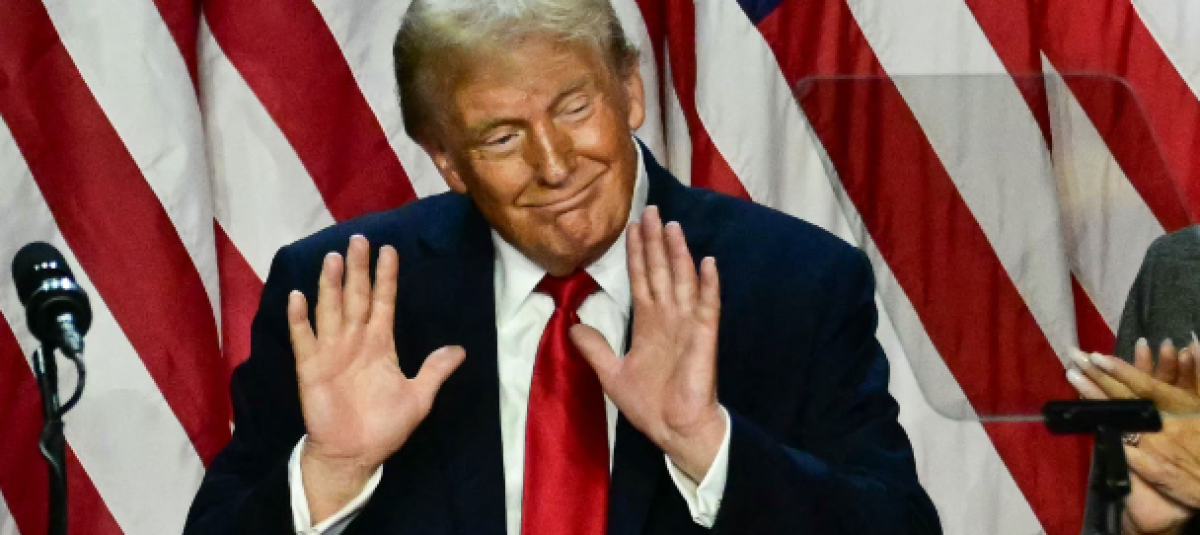Could Donald Trump's order to lower drug prices impact the Colombian market?

This Monday, U.S. President Donald Trump signed an executive order requiring pharmaceutical companies to reduce drug prices in the United States within 30 days. While the order doesn't force companies to lower costs, it does spark a fight between the so-called "big pharma" industry and the most powerful nation in the world.
The decree instructs the Department of Health, led by Robert F. Kennedy Jr., to negotiate new drug prices, and if no agreement is reached, a regulation will go into effect to equalize prices in the United States with those in other countries where they are lower.
During the signing of the executive order at the White House, Trump told reporters that Americans are “subsidizing medicines” from other nations by paying higher prices. “Europe will have to pay a little more. The rest of the world will have to pay a little more, and the United States will pay a lot less,” he stated.

President Donald Trump is seeking to address the high cost of medicines in his country. Photo: AFP
The president assured that the prices of certain medications in the United States will be reduced by up to 90% and stated that pharmaceutical companies can do so "voluntarily" or the White House will use "the power of the federal government" to guarantee it.
Trump cited the example of a friend of his, whom he did not identify by name but described as a "very neurotic, brilliant businessman, and considerably overweight" man, who called him complaining that the price of a weight-loss injection in the United Kingdom is much lower than in the United States.
According to the US press, it is unclear what effect this executive order may have on prices, nor what authority the government has to influence the prices paid by other countries. However, in countries like Colombia, there are regulations governing drug prices due to their significant impact on state finances, which are largely responsible for public health.
For example, Circular 01 of 2014, issued by the National Commission on Drug and Medical Device Prices (CNPMDM), is one of the key regulations within the country's drug price regulation system, as it establishes and develops technical aspects for price control through international referencing.

In Colombia, there are price controls on some medications. Photo: iStock
But beyond the potential disruption to the global economy, how much of an impact could the changes President Trump is seeking to bring to his country's pharmaceutical sector have on countries like Colombia?
According to Ramón Abel Castaño, a physician with a Ph.D. in Public Health and Policy, the United States is one of the markets where pharmaceutical companies earn the most from their products, so changes in its economy can impact these companies' global operations and financial results.
“Price-cost margins in the United States are the highest in the world, and there's even a law that prohibits Medicare, the largest payer in the United States, from negotiating prices with pharmaceutical companies. In other words, pharmaceutical companies can set any price they want, and the government, through the Medicare system, which is the public system for those over 65, must buy at those prices. So, obviously, pharmaceutical companies set their prices very high. This is a very strong blow to prices,” Castaño adds.

Medicare is a federal health insurance program in the U.S. Photo: aarp.org
In that sense, he believes it's likely that pharmaceutical companies, seeing their profit margins limited in the US, will seek to compensate for this loss by raising prices elsewhere. The first to be affected would be Europe and Asia, as Trump has stated. However, Castaño is clear in pointing out that while Latin America could also be impacted, it would be to a lesser extent, as there is also high regulation of drug prices there.
"It's not so certain that Trump will maintain this, as happens with many of his strategies, which scare people and then reverse them. Who knows what strategy he's pursuing with this? But it will certainly also have a negative impact on the rest of the world due to the way pharmaceutical companies set prices, particularly for products that are monopolistic, meaning they have no substitutes," warns the researcher.

Ramón Abel Castaño, a physician and Ph.D. in Public Health and Policy. Photo: Personal archive
According to the researcher, the adjustment would force the world's governments to rethink their price reference systems, that is, how they compare and regulate the costs of medicines compared to those of other nations. For the expert, if the effort to reduce costs materializes, it would cause a "disarray" in the global pharmaceutical system, altering the current balance of prices and access to essential medicines.
"We'll have to see how the government benchmarks prices to see how prices change in other countries. But it will definitely be—if it materializes, I repeat, which is not entirely certain—a huge disruption to the world's pharmaceutical markets," he warns.
Environment and Health Journalist
eltiempo




%3Aformat(jpg)%3Aquality(99)%3Awatermark(f.elconfidencial.com%2Ffile%2Fa73%2Ff85%2Fd17%2Fa73f85d17f0b2300eddff0d114d4ab10.png%2C0%2C275%2C1)%2Ff.elconfidencial.com%2Foriginal%2Ff5d%2Ff4a%2F58e%2Ff5df4a58eddd11966927b0ac162b13ff.jpg&w=3840&q=100)
